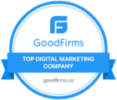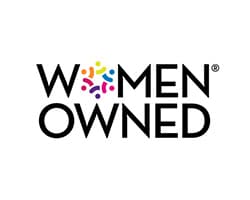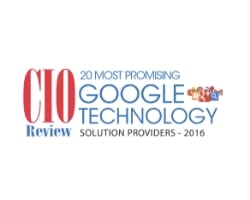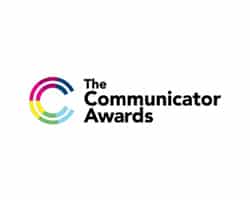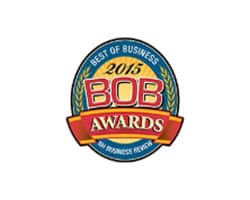In 1996, Bill Gates famously declared that ‘Content is king,’ foreseeing that the internet’s primary revenue source would be content, not too dissimilar to broadcasting. Nearly thirty years later, his prediction has proven remarkably accurate.
Today, content marketing stands as an essential component of any successful brand’s marketing strategy. It has evolved into a well-established marketing avenue for maximizing ROI and incorporating various channels. It has also evolved to include a variety of other channels and analytical tools to discern effective strategies.
Content marketers today are actively exploring innovative forms of valuable content that companies are eager to experiment with. While traditional written and printed content may be losing some of its appeal, online audio-visual formats, such as videos, live streaming, and webinars, are delivering impressive outcomes. Written content in the form of eBooks and infographics is also gaining recognition as valuable assets in an organization’s content marketing toolkit.
As marketing strategies continue to expand and diversify, neglecting even one content marketing channel can result in missed opportunities and potential lead loss for businesses. Here, we highlight six important content marketing trends to keep an eye on.
1. Personalized Content
Today’s consumers expect a highly personalized user experience and are quick to dismiss generalized information irrelevant to them. This expectation is backed up by compelling statistics, with 42% of consumers expressing annoyance when content lacks personalization and 66% stating that encountering non-personalized content would deter them from making a purchase.
On a positive note, the 2020 Trends in Personalization survey by Salesforce found that personalization significantly impacts marketing success. An overwhelming majority of marketers (99%) believe it advances customer relationships, with 78% saying it has a ‘strong’ or ‘extremely strong’ impact. While 92% say that their customers and prospects now expect a personalized experience, up from 85% in the previous year.
When asked about the benefits of personalization in their content strategy, there was broad agreement with marketers mentioning improved customer experiences (64%), increased conversion rates (63%), and enhanced visitor engagement (55%).
As businesses strive to engage and retain customer attention, the trend of personalization is likely to continue into 2024.
2. Virtual Reality (VR) & Augmented Reality (AR)
We’ve made significant progress with futuristic concepts like Virtual Reality (VR) and Augmented Reality (AR) becoming a part of everyday vocabulary – and they hold impressive potential with regard to marketing. A Facebook IQ survey found that 75% of business leaders plan to deploy AR/VR by the end of 2023, with global spending expected to grow sixfold by 2025.
While these terms are often used interchangeably, there are some key differences. VR creates a fully immersive digital environment, completely disconnecting users from the real world, typically with the help of headsets or goggles. In contrast, AR overlays digital information or objects onto the real world, enhancing what users see and experience, usually through devices like smartphones or smart glasses. An example of AR is Snapchat’s ability to add various lenses to a selfie.
Right now, the marketing potential for AR and VR is still developing, but it offers exciting possibilities for creative content marketers. As AR/VR gains popularity, immersive ads could become a unique way to convey your message to potential customers.
3. Video & Podcasting
The human brain processes visuals much faster than text, approximately 60,000 times faster, which explains why videos tend to be more engaging than plain text. Consumers generally prefer video content, with a study from Animoto revealing that 73% of consumers are influenced by a brand’s social media presence when making purchasing decisions. Videos also offer the advantage of simplifying complex topics and can be viewed conveniently from wherever they may be.
Marketers have recognized the importance of video and seamlessly incorporated it into their online and content marketing efforts. A significant 86% of marketing professionals have adopted video as a valuable marketing tool. Among them, 78% have seen direct increases in sales for their businesses, while 86% have seen a boost in website traffic due to videos. This just shows the effectiveness of video marketing for business success.
Podcasts represent a highly effective and steadily growing medium for businesses to engage with their target audience. Over the past decade, the popularity of podcasts in the United States has surged, with the number of listeners nearly tripling. Despite this remarkable growth, many businesses have yet to realize the full potential of this medium. Podcasts provide a platform for businesses to share valuable insights and expertise in an engaging and often entertaining manner, allowing for a deeper connection with the audience.
4. Conversational Marketing with Chatbots
It is anticipated that in 2024, chatbots will take on a significant portion of one-to-one customer interactions, and as AI, natural language processing, and machine learning continue to advance, chatbots will become even more sophisticated. According to one study by Mobile Marketer, chatbots are projected to drive $112 billion in retail sales by the end of 2023, demonstrating the positive impact chatbots can have on your bottom line.
The main benefit of chatbots is their round-the-clock availability at various customer touchpoints. The success of AI-enabled chatbots will largely depend on human involvement behind the scenes, focusing on scripting, language, and leveraging natural language processing (NLP) tools to refine the queries the bots can handle.
Chatbots are designed to engage with customers through both text and voice-based methods. They are commonly deployed as customer service representatives on a website’s homepage or as automated voice responders on a business’s phone lines. These chatbots possess machine learning capabilities, allowing them to generate future conversations based on previous interaction data.
As we head into 2024, these chatbots will be instrumental in automating customer interactions, answering queries, and guiding customers through their buying journey.
5. Data-Driven Content Marketing
Today, content marketers find themselves facing ever-increasing demands and challenges. While creativity remains a crucial component of content marketing, a new element has emerged: big data. This development holds tremendous potential benefits for marketers who embrace a data-centric approach.
Data-driven marketing is when marketing teams build their strategies based on data analysis to gleam insights into customer preferences and broader trends that impact a marketing campaign’s success.
Data-driven strategies can significantly improve customer experience and the perception of a brand and empower organizations with a deep understanding of consumers’ needs and interests to tailor their content to these preferences. They contribute to improved conversion rates, as the highly targeted messaging facilitated by data-driven marketing is more likely to capture the attention of users.
The added layer of personalization provided by data-driven marketing fosters trust between consumers and brands while simultaneously creating positive customer experiences. The impact of such personalization is underscored by research from McKinsey, which reveals that personalized experiences can provide a remarkable 5-8 times return on investment for marketing expenditures.
When it comes to measuring analytics, marketers are not lacking in options. A wide range of tools are available for this purpose, providing businesses with a diverse toolkit. Companies invest in tools like Google AdWords, Google Analytics, MailChimp, Asana, BuzzSumo, MeetEdgar, Buffer, and Hootsuite to streamline their marketing efforts and gain insights into their marketing performance.
Conclusion
If content marketers are to maintain a competitive edge, they must remain adaptable and forward-thinking. With 2024 on the horizon, it’s the perfect moment to commence strategic planning. By embracing these trends and leveraging the tools available, businesses can continue to thrive in the ever-evolving world of content marketing.
About Millennium Agency
Millennium Agency stands as a nationally acclaimed, award-winning branding and strategic marketing firm based in Boston and Manchester, New Hampshire. Our accomplished team of marketing professionals have diverse expertise in areas such as market research, brand strategy, creative design, website development, and digital marketing. With more than 25 years of experience in B2B branding, positioning, and digital marketing, we provide a wide range of services customized to meet your specific needs.
Schedule a meeting to learn more.








